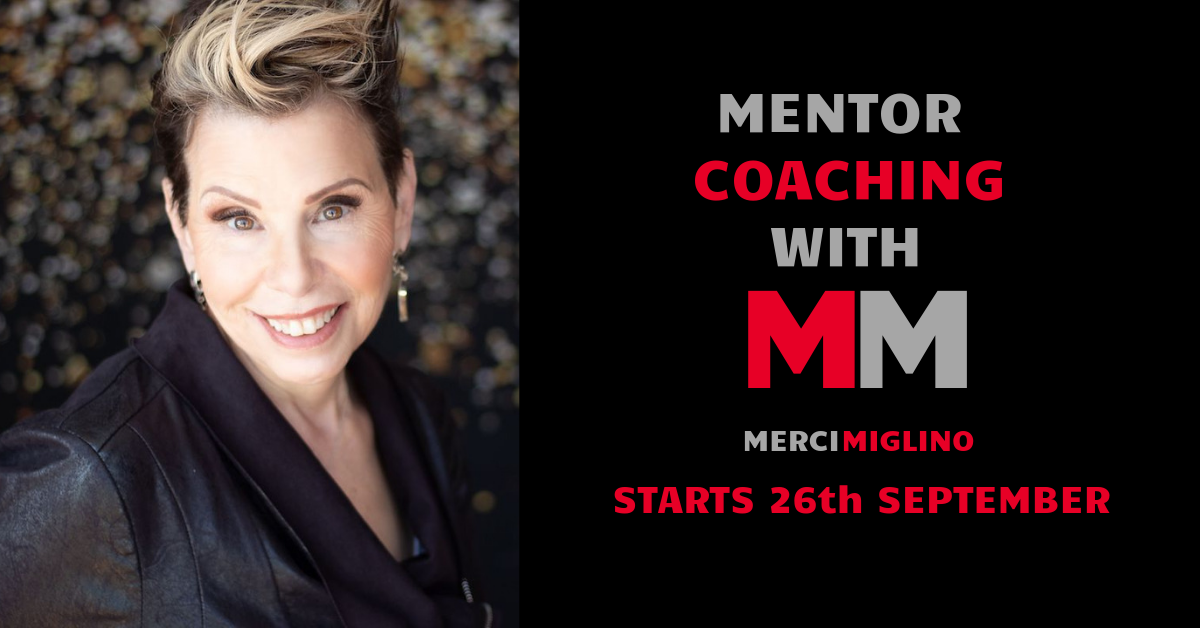After 3000 hours of coaching, 15 years as a successful coach, and 10 years as a trainer of coaches, I still didin’t have my MCC (Master Certified Coach).
You can imagine my frustration! But this trial has not been in vain. I have learned (kicking and screaming at times) that to be a master level coach you have to give up more than you have to add. In short, less is more when coaching at the level.
So what exactly do you have to give up?
Avoiding the coaching agreement.
You might already know or assume you know what the client wants from the session, but the truth is neither of you know for sure. That’s why a SOLID coaching agreement can be invaluable. With a specific focus for the session, you avoid drifting to far afield of the topic, trying to manage too big an issue, or getting into the story the client is telling rather than who the client is in the situation.
This sounds like:
In our 30 minutes together, what do you want to focus on that will make the session valuable?
In our 30 minutes together, what will make a difference for you?
Believing the first thing the client says.
Sometimes a client comes to a session with a vague topic like wanting more life work-balance, or better time management. These topics need to be probed to get to the heart of what someone is really concerned with.
This sounds like:
What do you mean by work life balance?
What makes it important to you?
Ums, Ahs and Ohs.
This is a challenge! After all, the client needs to know I’m listening especially in a phone session, right? Actually, these affirmations can disrupt the coaching flow, or the client’s thought. There are better ways to acknowledge your client and/or assure them you have heard them.
This sounds like:
Sounds as though this problem is disconcerting to you.
It sounds like a trying or difficult situation for you.
Use their name
Thomas, I can hear there is a lot going on for you. I am wondering …?
Mary, what I am getting from that is….
Stop Parroting.
You want to encapsulate what your client is saying or share an observation, but don’t summarize by recapping or parroting back word for word or too often. That wastes time since you want to get at the underlying emotion, not more of the story. Too much recapping will disqualify you from getting your MCC.
Sounds like this:
What about this?
What will you do?
What resonates with you now?
What do you see about that?
Ditch Your Metaphors.
I do not agree with this one but if you are looking for your MCC always use the client’s metaphors, not yours. Ask the client what this looks like to them and then build on it.
This sounds like:
You say this problem is like a pebble in your shoe, what if you could walk freely?
Drop the Pom-Poms.
Avoid cheerleading words like Wow or Great Job they are opinions rather than acknowledgments. Strive to be more neutral. (It is ok to say “congratulations”.)
This sounds like:
Sounds like you worked hard on that.
That sounds like a major win.
Stop Before the End.
Don’t keep going because you have more time.
If the client has had a shift, and identified actions and the coach keeps going and asking what else should we work on, etc. you will not pass the MCC assessment. Know when you reached the end. It is usually 20 minutes in at this level of coaching.
This sounds like:
We’re coming to the end of our call, where are you with the goal you set for the session?
What else do you need to support this goal?
Is this a good place to complete?
Overlooking the Agreement.
The best way to end the coaching conversation is to loop back to the coaching agreement you established at beginning of the session. And verify you got there.
This sounds like:
When we started you wanted clarity. Where are you now?
Where are things at this point?
Remember the ICF assessor is listening to the coach NOT the client. How and what you say are more significant than the client’s outcome. So don’t push or encourage or lead the conversation in any way.
